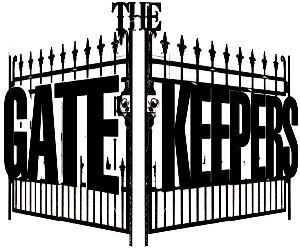
One of the points that I found most intriguing in Richard Ohmann's essay "The Shaping of a Canon: U.S. Fiction, 1960-1975" was that the American professional-managerial class of the 20th century has promoted their own interests by having the status, positions, power, and sheer numbers to select which literary works would become best sellers (some of which would eventually be canonized). What particularly interests me is Ohmann's discussion of the type of literature that drew in these "intellectual gatekeepers":
"...stories of people trying to live a decent life in contemporary social settings, people represented as analogous to 'us,' rather than as 'cases' to be examined and understood from a clinical distance, as in an older realistic convention. They are unhappy people, who move toward happiness, at least a bit, by the ends of their stories."
Ohmann also suggests that the needs and values of this class, this group of people who "went to the same colleges, lived in the same neighborhoods, talked about the same movies, had to work for their livings (but worked with their minds more than with their hands)" were influenced by novels that provided a moral landscape and advice for how to live. Thus despite their ignorance of the continued problems that existed for the working class and poor in American society (racial, class, and economic injustice), this white collar class sought out novels which provided their lives with meaning in times when they were shaken by events or personal crisis. Ohmann does a good job of tracing the historical and cultural factors which shaped the attitudes of the "intellectual gatekeeper" class: post-war affluence, American domination of the "free world," the muted sense of social conflict and inequality, increased feelings of independence and weakening of community, etc. Essentially, this class was privileged and comfortable (though curiously unhappy, or at least they identified with unhappy protagonists), and there was no one telling them that the rest of the world looked any different than it did from their limited middle class perspective. As a result of their dominance as producers, consumers, and "intellectual gatekeepers" of literature, the U.S. literary canon was formed in their time according to their aesthetic tastes.
What sorts of stories might have inspired the working class? What voices would have resonated with them, spurring best sellers had they had the power and means to control the formation of the literary canon? Stories of struggle and social injustice? Stories of the rural and urban poor trying to make ends meet from day to day? Stories that promised a better tomorrow? Stories that promoted finding fulfillment in community and familial relationships? Love stories? Rags to riches stories? It is interesting to acknowledge that we do seek out literature which illuminates our own values and concerns. We search out what is most relevant to life as we live it. And, as both Ohmann and Benjamin suggest, for those who find themselves situated in an individualistic, industrial-capitalist world, one of the most sought out themes is how to deal with loneliness and isolation.
No comments:
Post a Comment